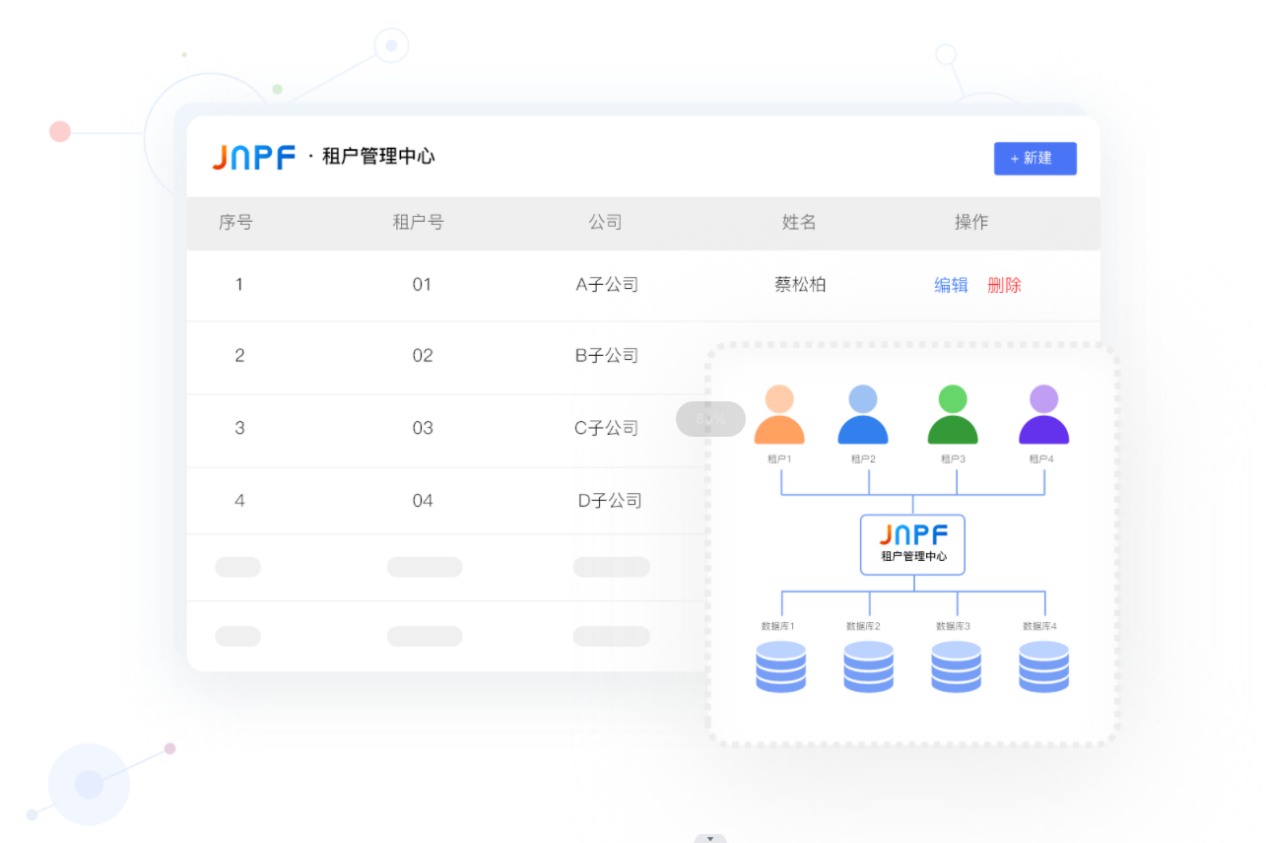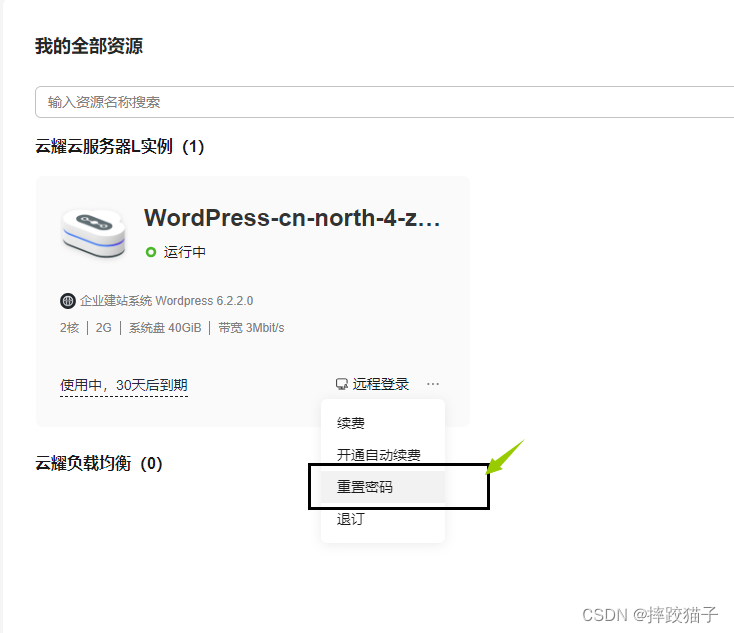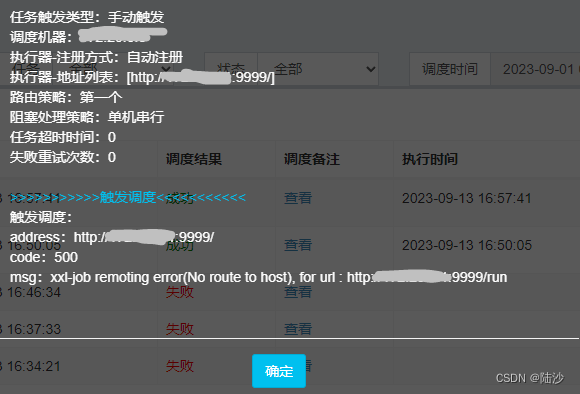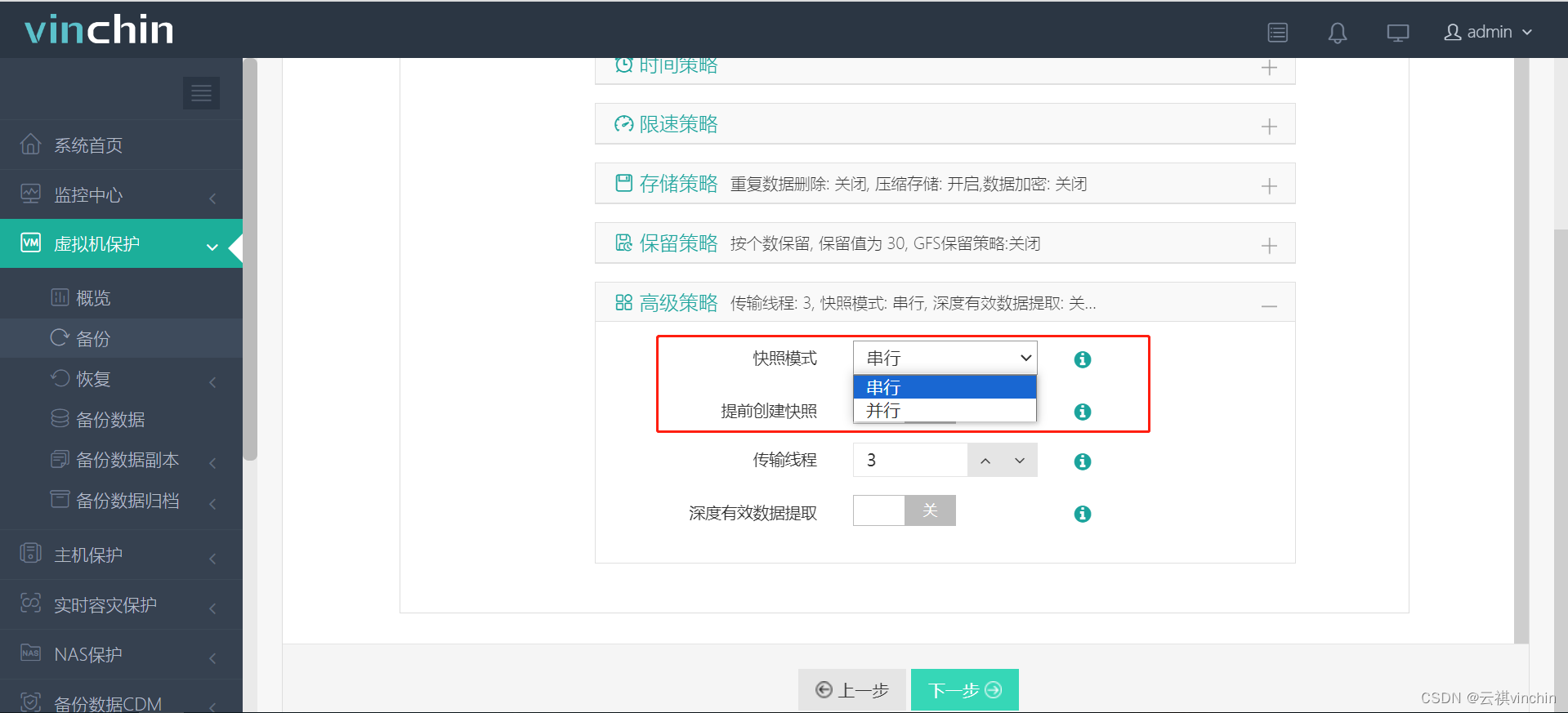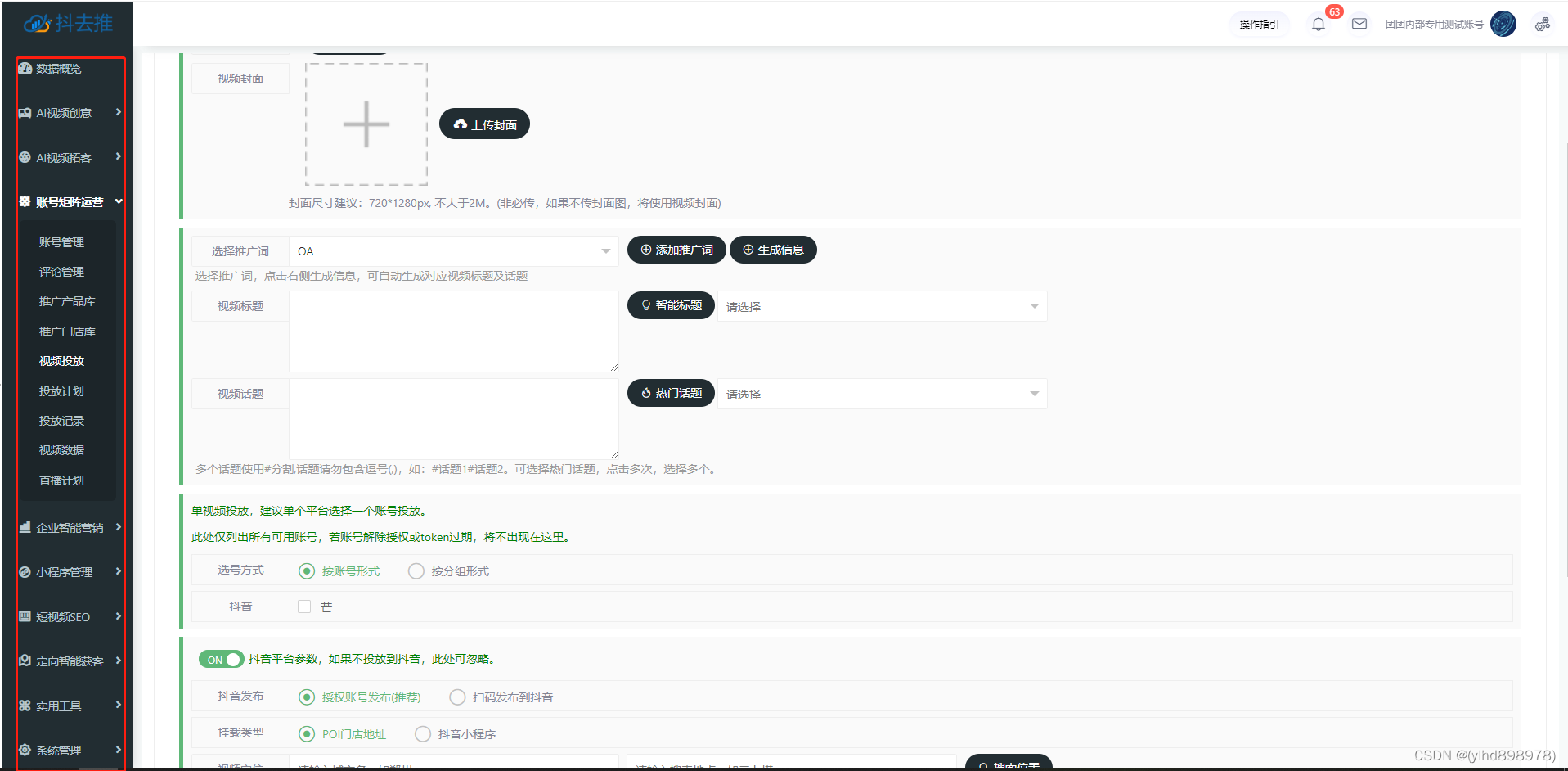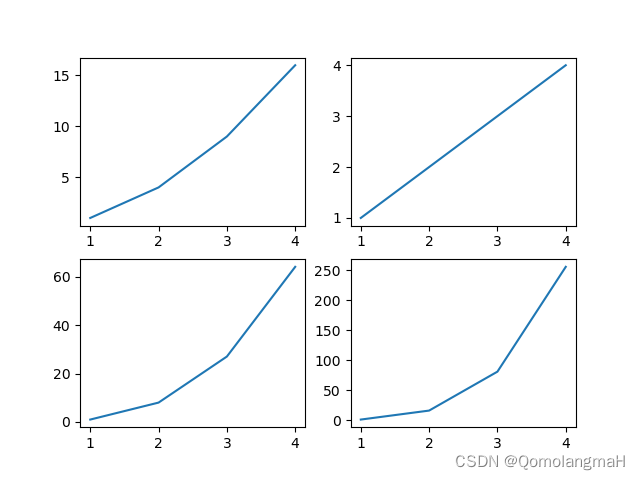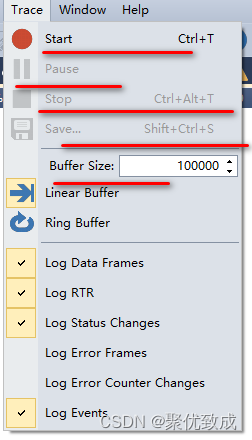ThreadPoolExecutor源码
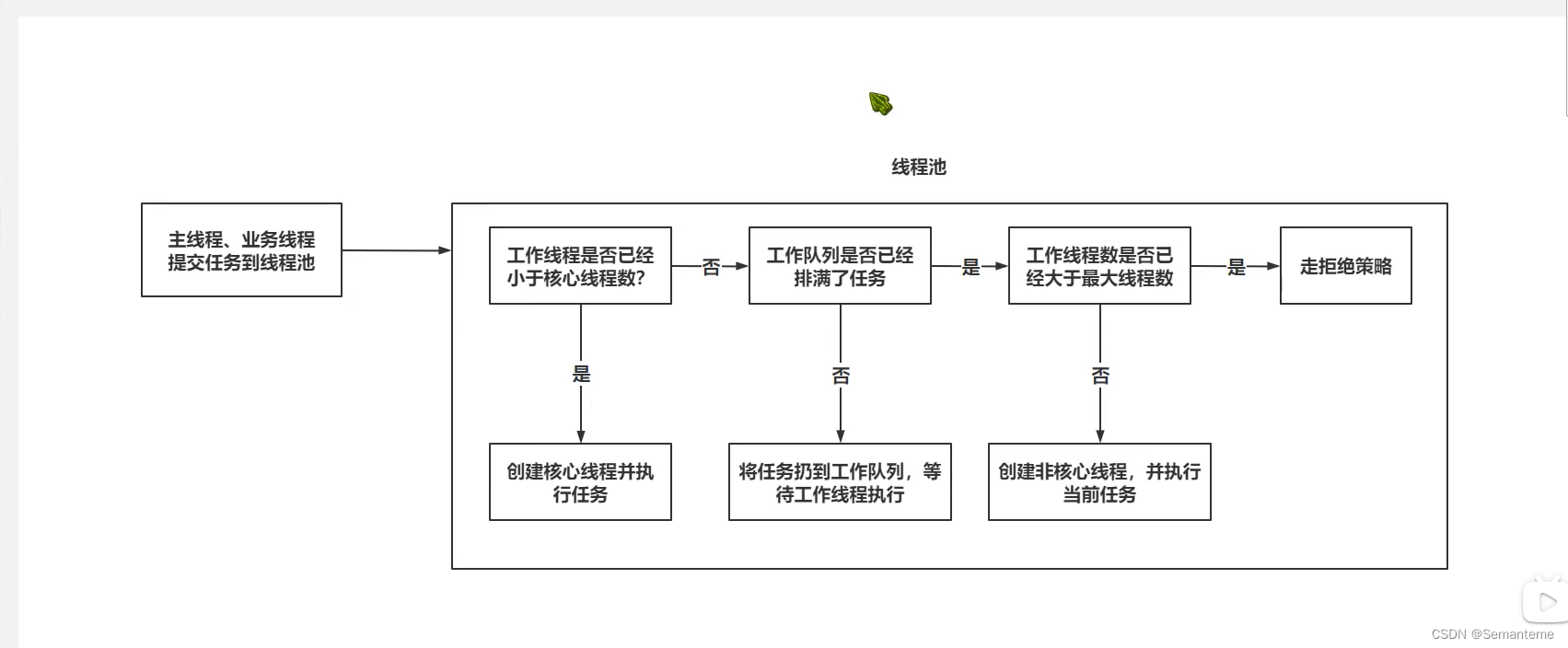
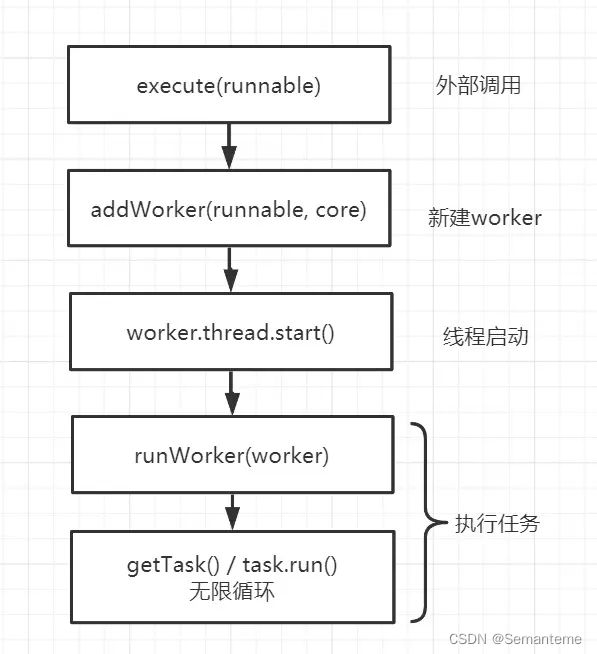
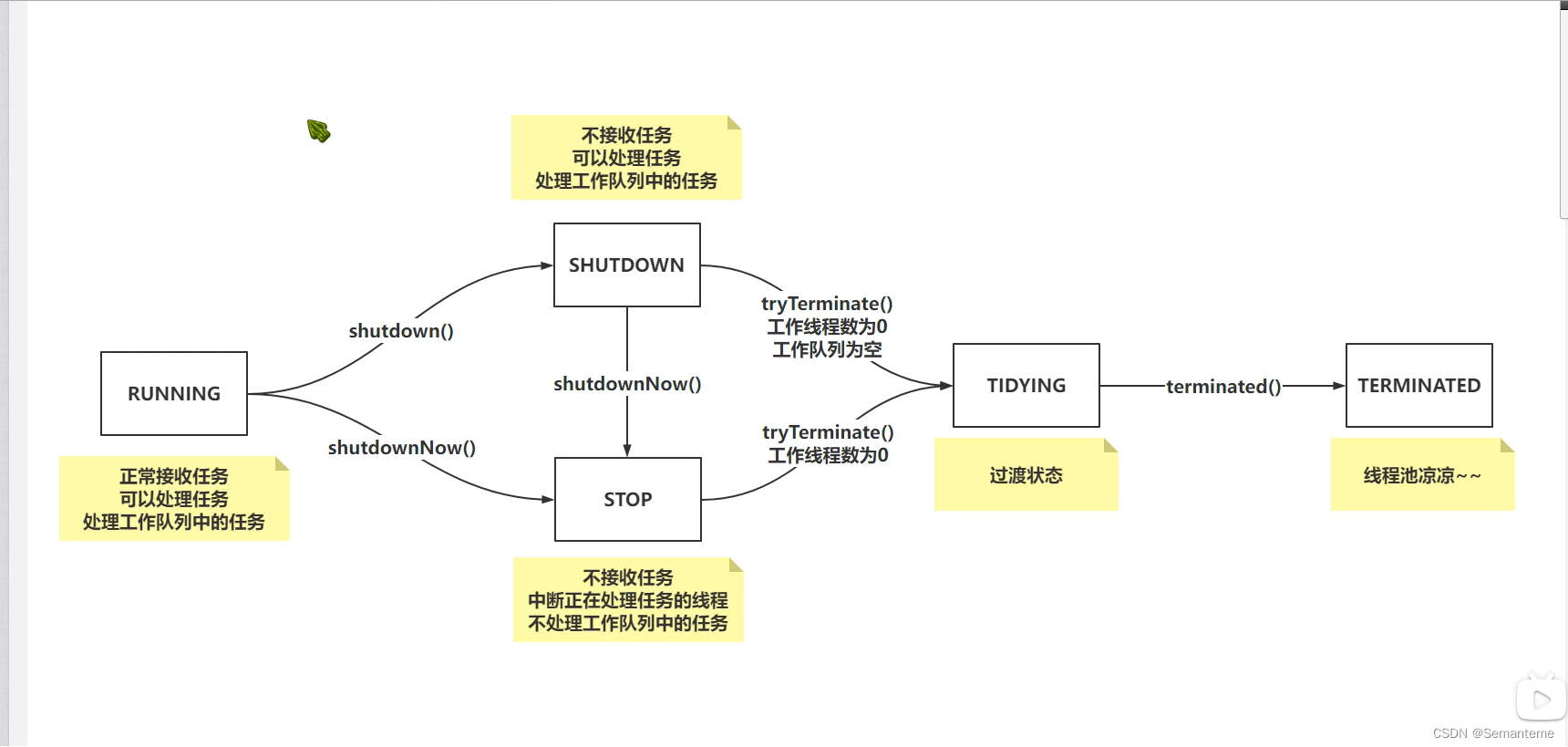
大纲
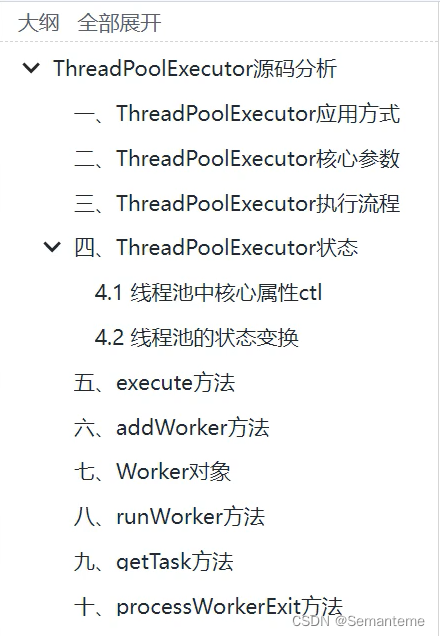
给线程池中添加任务
public void execute(Runnable command) {
if (command == null)
throw new NullPointerException();
int c = ctl.get();
if (workerCountOf(c) < corePoolSize) {
if (addWorker(command, true))
return;
c = ctl.get();
}
if (isRunning(c) && workQueue.offer(command)) {
int recheck = ctl.get();
if (! isRunning(recheck) && remove(command))
reject(command);
else if (workerCountOf(recheck) == 0)
addWorker(null, false);
}
else if (!addWorker(command, false))
reject(command);
}
新建Worker开始执行或添加任务到队列
private boolean addWorker(Runnable firstTask, boolean core) {
// Worker数+1
retry:
for (int c = ctl.get();;) {
// 1、当线程池状态为SHUTDOWN并且
// 2、当线程池状态为STOP或第一个任务不为null或工作队列为空
if (runStateAtLeast(c, SHUTDOWN)
&& (runStateAtLeast(c, STOP) || firstTask != null || workQueue.isEmpty()))
return false;
for (;;) {
if (workerCountOf(c)
>= ((core ? corePoolSize : maximumPoolSize) & COUNT_MASK))
return false;
// CAS 修改Worker数+1
if (compareAndIncrementWorkerCount(c))
break retry;
c = ctl.get(); // Re-read ctl
if (runStateAtLeast(c, SHUTDOWN))
continue retry;
// else CAS failed due to workerCount change; retry inner loop
}
}
boolean workerStarted = false;
boolean workerAdded = false;
Worker w = null;
try {
w = new Worker(firstTask);
final Thread t = w.thread;
if (t != null) {
final ReentrantLock mainLock = this.mainLock;
mainLock.lock();
try {
// Recheck while holding lock.
// Back out on ThreadFactory failure or if
// shut down before lock acquired.
int c = ctl.get();
if (isRunning(c) ||
(runStateLessThan(c, STOP) && firstTask == null)) {
if (t.getState() != Thread.State.NEW)
throw new IllegalThreadStateException();
workers.add(w);
workerAdded = true;
int s = workers.size();
if (s > largestPoolSize)
largestPoolSize = s;
}
} finally {
mainLock.unlock();
}
if (workerAdded) {
// SharedThreadContainer
container.start(t);
workerStarted = true;
}
}
} finally {
if (! workerStarted)
addWorkerFailed(w);
}
return workerStarted;
}
runWorker
- 执行在队列中等待的任务
- 从队列中获不到待执行的任务时线程退出
final void runWorker(Worker w) {
Thread wt = Thread.currentThread();
Runnable task = w.firstTask;
w.firstTask = null;
w.unlock(); // allow interrupts
boolean completedAbruptly = true;
try {
// while 执行任务,
// 第一次循环执行firstTask,
// 第二次循环开始从getTask()获取任务
// 当getTask()获取不到任务时线程退出
while (task != null || (task = getTask()) != null) {
w.lock();
if ((runStateAtLeast(ctl.get(), STOP) ||
(Thread.interrupted() &&
runStateAtLeast(ctl.get(), STOP))) &&
!wt.isInterrupted())
wt.interrupt();
try {
beforeExecute(wt, task);
try {
// 执行任务
task.run();
afterExecute(task, null);
} catch (Throwable ex) {
afterExecute(task, ex);
throw ex;
}
} finally {
// 将第一次循环中的任务重置为null
task = null;
w.completedTasks++;
w.unlock();
}
}
completedAbruptly = false;
} finally {
processWorkerExit(w, completedAbruptly);
}
}
getTask
private Runnable getTask() {
boolean timedOut = false; // Did the last poll() time out?
for (;;) {
int c = ctl.get();
// Check if queue empty only if necessary.
if (runStateAtLeast(c, SHUTDOWN)
&& (runStateAtLeast(c, STOP) || workQueue.isEmpty())) {
decrementWorkerCount();
return null;
}
int wc = workerCountOf(c);
// Are workers subject to culling?
boolean timed = allowCoreThreadTimeOut || wc > corePoolSize;
if ((wc > maximumPoolSize || (timed && timedOut))
&& (wc > 1 || workQueue.isEmpty())) {
if (compareAndDecrementWorkerCount(c))
return null;
continue;
}
try {
Runnable r = timed ?
workQueue.poll(keepAliveTime, TimeUnit.NANOSECONDS) :
workQueue.take();
if (r != null)
return r;
timedOut = true;
} catch (InterruptedException retry) {
timedOut = false;
}
}
}



